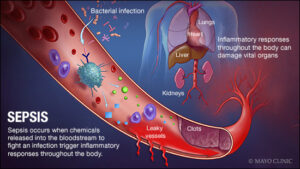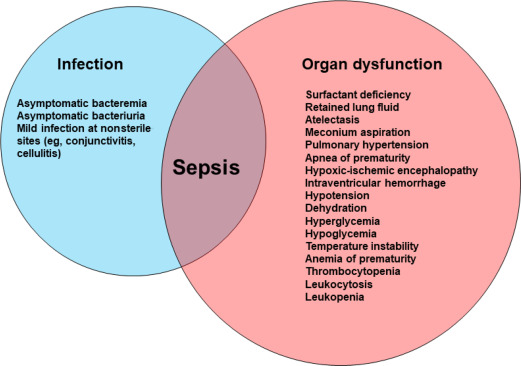
Septicemia is a serious condition, and if left untreated, it can lead to fatal complications. This condition occurs when the body mounts a strong immune response to an infection, resulting in widespread inflammation throughout the body. Severe cases of sepsis can cause organ failure, and the patient must be hospitalized for treatment. People with chronic conditions are especially vulnerable, because their immune systems are already weakened.
The most common causes of septicemia are bacterial infections. Acute respiratory distress syndrome (ARDS) is one of the most dangerous complications. The body’s inability to absorb oxygen from the air is an indication that the septicemia has spread to the blood. This disorder can affect the brain, heart, and lungs. This is especially risky for people with certain medical conditions, such as those with a weakened immune system.
Septicemia is caused by a bacterial infection
that has spread throughout the body. It is caused by an autoimmune reaction, which is a type of reaction the body produces in response to an invading microbe. When this happens, the patient’s body begins to mount an immune response, and changes in temperature, breathing rate, and white blood cell count are a sign of illness.
Causes of septicemia
The main causes of septicemia are bacteria. These infections can be caused by many types of infec tions. Sepsis most often affects the elderly, premature babies and people with chronic diseases. People with weak immune systems are at higher risk of developing sepsis. However, medical advances have had a significant impact on the mortality rate from sepsis. Fewer than 15 million people have died from the disease, according to a 2020 sepsis study.

Causes of septicemia include infection of the digestive tract, urinary system and lungs. It can also be caused by an infection of the heart or kidneys. Acute respiratory distress syndrome is an extremely serious complication of septicemia and can lead to brain damage and organ failure. Children should be checked regularly for any signs of illness to avoid septicemia. This disease can be treated with antibiotics, but there are some serious complications. You can find out more information about the disease on the website https://incasolmxofficial.com/.
Symptoms of septicemia can vary greatly. The disease is often caused by bacteria that can attack the lungs. The lungs contain a large number of bacteria that can cause infection. Septicemia is a serious condition that can lead to multiple organ failure. In severe cases, the patient may lose consciousness. The patient may be unable to breathe normally or may develop a fever. Ultimately the patient may die.
Acute respiratory distress syndrome is the most serious complication of septicemia. Acute respiratory distress syndrome occurs because the blood and lungs do not receive enough oxygen. The patient may experience low blood pressure and heart palpitations. These symptoms can cause a person to collapse and die. Septicemia is a serious medical condition and should be treated immediately. A doctor will be able to diagnose the condition and determine the best treatment for your patient.
Infections of the lungs can spread throughout the body through the blood. When septicemia is severe, the immune system goes into overdrive and can cause widespread inflammation. This can lead to a dangerous drop in blood pressure, and the patient may lose consciousness. Septicemia causes in the lung are not known, but the condition can affect a person’s organs. Therefore, it’s vital to seek medical attention if you suspect symptoms of septicemia.
In addition to the underlying causes, septicemia may also be present in the elderly, premature babies, and individuals who have been immunosuppressed. It can also occur in people with certain chronic conditions or take medications that suppress the immune system. Septicemia can be caused by bacterial infections of the blood and the lungs. There are several causes of septicemia. Septicemia can be caused by a bacterial infection.
Symptoms of septicemia include high blood pressure, organ malfunction, and fluid retention. As a result, blood pressure may fall significantly, limiting vital organ function. Septicemia may also be fatal. Patients with weakened immune systems may not display symptoms. The symptoms of septicemia include poor blood flow, decreased blood volume, and lowered body temperature. These symptoms are not uncommon in severe cases, and it’s important to seek medical attention immediately if you suspect sepsis.